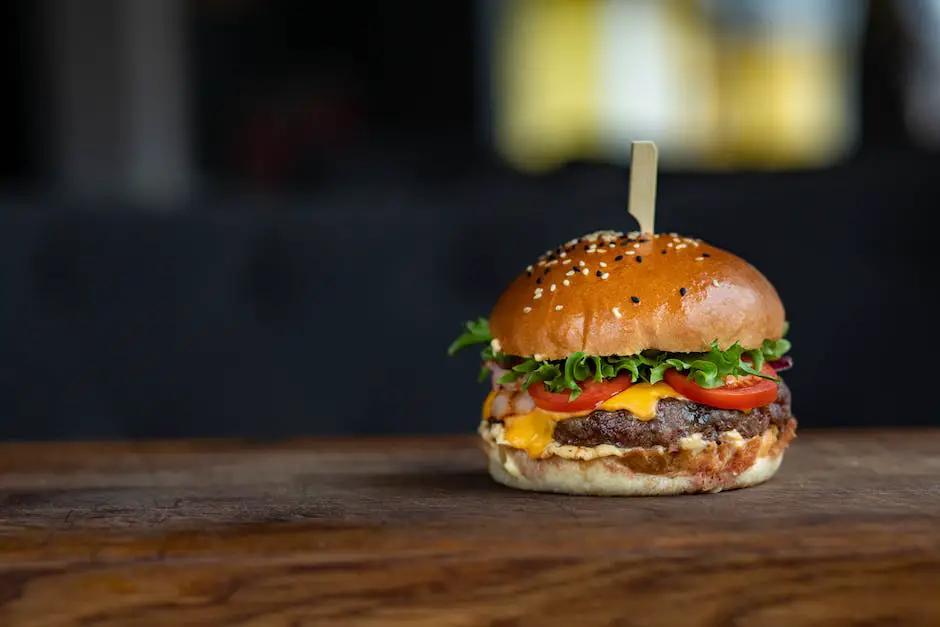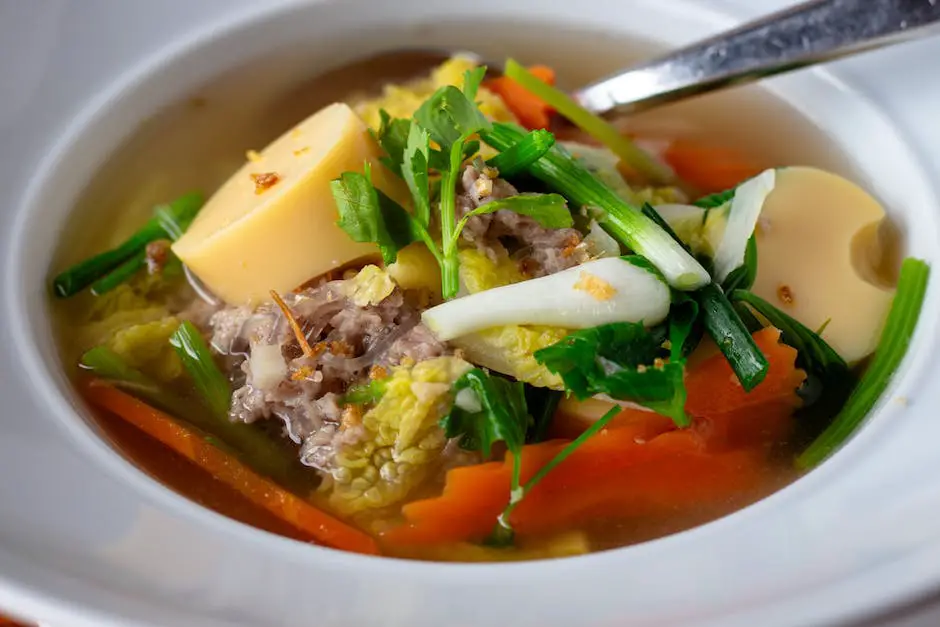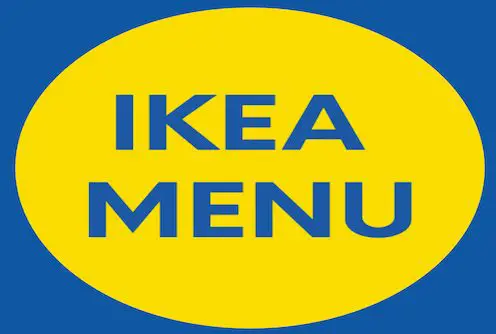Ever since its inception, the Impossible Burger has challenged the traditional concept of meat, making waves as it entered various major retail and fast-food chains. The burger’s latest breakthrough saw it occupying valuable shelf space at Costco, a testament to shifting consumer tastes and increased attention to sustainability. In this investigation, we delve into the journey of the Impossible Burger into Costco stores, the science behind its production, its environmental footprint, and its impact on the future of food.
The Impossible Burger at Costco
The Impossible Burger at Costco
Costco, a membership-only warehouse club, began offering the Impossible Burger in July 2020. This move marked a significant step in the mainstream acceptance of plant-based meats, with Impossible Foods’ flagship product becoming readily available in one of the largest and very popular warehouse retailers in the United States.
Packaging and Price
For the first time, the Impossible Burger was available in a bulk pack, aimed at family-sized shopping habits. The 2-pound packaging was targeted at meeting the needs of larger households and for those preferring the convenience of bulk buying. Still, Costco remained committed to offering the product at a competitive price. The 2-pound package of Impossible Burger was priced at $14.99, which worked out to roughly half the price of what it might cost at traditional grocery stores where the Impossible Burger was sold in 12-ounce packages.
Availability
The Impossible Burger’s launch at Costco started in select locations, including stores in California, Oregon, and other select locations across the U.S.’s western region. The distribution has since expanded, and now the Impossible Burger is available at most Costco locations nationwide.
Consumer Demand and Sustainability
Costco’s decision to stock the Impossible Burger reflects rising consumer demand for plant-based meat alternatives. More and more people are seeking these alternatives as they strive to reduce their meat consumption for health, environmental, and animal welfare reasons.
The Impossible Burger’s mix of soy and potato proteins, coconut and sunflower oils, and its key ingredient, heme, enables it to mimic the taste and texture of a traditional beef patty while being entirely plant-based. The introduction of such a satisfying meat alternative allows consumers to make more sustainable food choices without having to sacrifice their tastes.
Company’s Sustainability Practices
Costco’s commitment to sustainability also played a role in their decision to stock Impossible Foods’ plant-based meat. They see the adoption of plant-based alternatives as an important step toward reducing the environmental impact of food production. According to Impossible Foods, producing an Impossible Burger uses 96% less land, 87% less water, and emits 89% fewer greenhouse gases compared to a conventional beef burger.
Plant-Based Eating: Looking to the Future
Costco’s addition of the Impossible Burger to their inventory not only marks a significant milestone for plant-based meat substitutes but also predicts a promising future for the plant-based diet industry. One of the largest grocery chains in America, Costco’s choice to stock such products undoubtedly carries influential weight – potentially urging other supermarkets to expand their own range of plant-based offerings.
By incorporating the Impossible Burger into their product list, Costco enlightens us about the significant strides the food industry has made in catering to the ever-increasing demand for plant-based alternatives. It also demonstrates that consumers are prepared to embrace these substitutes, indicating a shift towards a more sustainable path in our food consumption habits and choices.

The production and ingredients of the Impossible Burger
The Birth and Composition of the Impossible Burger
Riding a wave of popularity, the Impossible Burger – a plant-based meat substitute – has been turning heads due to its uncanny meat-like qualities. Produced by Impossible Foods, this groundbreaking burger uses the power of science to create a plant-based alternative that replicates the taste, texture, and typical responses to cooking as real meat. This innovative ‘imitation meat’ leverages a variety of plant-based components to achieve its desired characteristics.
The key protein components used in the burger are derived from soy and potato. The edible sculpture also embraces other vital ingredients like methylcellulose as binders, and a multitude of vitamins, minerals, and amino acids for nutritional completeness. Yet, the component that steals the limelight in this groundbreaking burger is heme – an iron-containing compound that naturally occurs in animals and plants. In the Impossible Burger, it’s the soy legume hemoglobin (LegHemoglobin) derived heme that imparts the distinctive ‘bloody’, meat-like flavor.
Manufacturing Process of the Impossible Burger
Despite the burger’s plant-based composition, the production process mirrors that used for traditional meat products. The proteins used are heated, cooled, and combined to bring a familiar bite and chew to the finished product. The difference, of course, lies in the source of these proteins – instead of animal meat, ingredients such as soy and potatoes supply the needed proteins.
The process to extract heme from the roots of soy plants for use in the Impossible Burger is complex. Firstly, yeast is genetically engineered to produce heme. Following this, the yeast is fermented in a way similar to breweries, multiplying the quantity of heme. This heme is then harvested and combined with the rest of the burger ingredients.
The Environmental Impact
Over the past few years, consumers have become particularly conscious of the environmental impact of their food choices, with many choosing plant-based alternatives to reduce their carbon footprint. The production of the Impossible Burger reportedly requires approximately 96% less land, 87% less water, and emits about 89% less greenhouse gas compared to conventional beef from cows.
Results from a peer-reviewed life cycle analysis (LCA) made public by Impossible Foods show that impostor burgers have a significantly smaller environmental impact than their grass-fed counterparts by virtually every measure.
Impossible Burger in Costco
The Impossible Burger’s entry into big box retailers like Costco brings a promising future for plant-based eating. Offering these plant-based alternatives in bulk not only makes them more accessible to a broader audience, but it also signals a shift in consumer tastes, as people opt more and more for these environmentally friendly and healthful options. As of now, consumers can purchase a 12-pack of plant-based burger patties at their local Costco, thereby having a direct impact on the increasing demand for plant-based foods.
The Advent of a Plant-Based Future
With an increasing number of individuals opting for meat-substitute offerings, it’s clear those are not just fleeting fads, but rather part of a larger trend towards more sustainable and ethically-informed food choices. Seeing the Impossible Burger’s reputable standing and its extensive availability in large retail outlets like Costco, it’s undeniable that a promising future awaits plant-based eating.

Public reception and the future of plant-based eating
Customer Perspectives of the Impossible Burger at Costco
When Impossible Foods introduced its Impossible Burger at Costco, a swarm of customers was keen to trial this famed plant-based substitute. The vegan burgers swiftly became a favorite among vegetarians, vegans, and even carnivores searching for a healthier or more eco-friendly alternative. The overwhelming public response praised the product for delivering a convincingly meaty flavor and texture sans the use of any animal-derived ingredients.
Postings on Costco’s website have lauded the Impossible Burger for its compelling beef-like taste and texture, with some reviewers boldly claiming it as superior to authentic beef. Nevertheless, it wasn’t all applause. There were a few detractors who expressed disappointment with its pricing or pointed out the product’s higher levels of saturated fat and sodium.
Sales Figures and Market Trends in Plant-Based Foods
Sales of plant-based foods have soared in recent years, and Impossible Foods has been at the forefront of this trend. The Impossible Burger’s success at Costco is a testament to the growing demand for plant-based options in mainstream food retailers. As per the Plant Based Foods Association (PBFA), sales of plant-based foods in the United States have grown 43% in the past two years, reaching $7 billion in 2020.
Predictions for the Future of Plant-Based Eating
Predictions for the future of plant-based eating are largely optimistic, with many industry experts believing that the trend is set to continue. According to a report by Grand View Research, the global plant-based meat market is expected to grow at a compound annual growth rate (CAGR) of 19.4% from 2021 to 2028.
The success of the Impossible Burger at Costco is seen as an encouraging sign for advocates of plant-based eating. Its wide availability at such a popular and large volume retailer indicates a mainstream acceptance and increased accessibility of plant-based options.
Impact on the Meat Industry and Sustainability
The rise in demand for plant-based alternatives like the Impossible Burger can impact the meat industry. Some ranchers and farmers express concern over the threat these products may pose to their livelihoods. However, the meat industry remains a formidable market with sales far surpassing those of plant-based alternatives.
From a sustainability standpoint, the shift towards plant-based foods is seen as a positive step. Cultivating plant-based protein uses considerably less water and land compared to raising livestock, leading to fewer greenhouse gas emissions. Hence, the rise in products like the Impossible Burger is viewed as a beneficial trend for environmental reasons.
Despite the challenges and criticisms, the success of the Impossible Burger at Costco is seen as a promising indication of a more balanced, sustainable, and accessible food future.

Too often, change is met with resistance, but the rise of the Impossible Burger and its subsequent embrace by consumers and retail giants like Costco unveil a different narrative. Encouraged by advancements in food science and growing concerns over environmental sustainability, the popularity of plant-based alternatives goes far beyond a fleeting trend. As we stand on the precipice of possibly more significant shifts in dietary habits, it is vital to delve into the efforts made in shaping this future. The story of the Impossible Burger at Costco is one of innovation, embracing change, and the consumers’ readiness to redefine food practices for a healthier planet.


